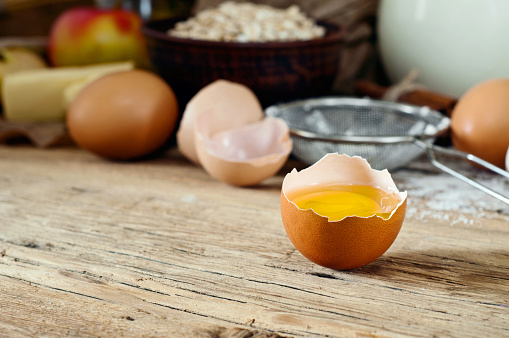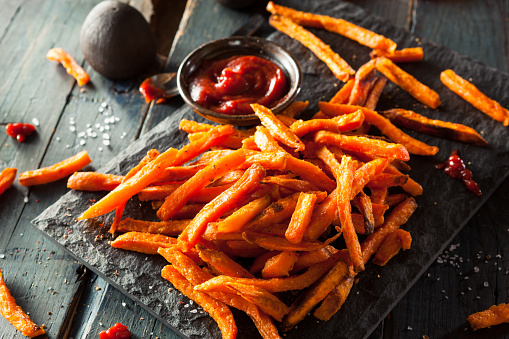Ready or not, here they come…
In case you’ve missed the glaring lights and blaring commercials, it’s official… the holidays are upon us. And Thanksgiving, with all of its food-based traditions, promises to put your weight loss willpower to the test.
According to research from the Calorie Control Council, a typical traditional Thanksgiving dinner can clock in at 3,000 calories. Add to that apps and drinks, and you’ve got yourself a 4,500 calorie meal—that’s more than two times the average daily intake. This same source reports that the average Thanksgiving enthusiast may fill up on close to 230 grams of fat—the fat equivalent of three sticks of butter.
But with a little planning, you can make it through Thanksgiving without putting on more stuffing. Check out these 23 simple strategies sure to help keep the “trim” in your turkey day:
1. Don’t skip breakfast
Don’t “save space” for dinner. We all know what happens when we don’t eat all day—we become ravenous and are more likely to gobble up everything in sight. Plus, when it comes to weight loss, the old adage that breakfast is the most important meal of the day may very well hold true. In a study in the journal Obesity, overweight people who were dieting and ate more calories for breakfast than dinner lost more weight compared with subjects who ate larger evening meals. Make sure to opt for a morning meal that’s high in protein like an egg white veggie omelet or non-fat Greek yogurt with fresh fruit—this will help keep you feeling fuller as you head into the potential diet dark hole that is Thanksgiving dinner.
2. Work in a workout
Be sure to get a good sweat session in before you dive in to dinner. A study published in 2009 in the American Journal of Physiology revealed that vigorous exercise may suppress a key hunger hormone for up to 30 minutes after workouts and can increase the levels of an appetite-suppressing hormone for as long as three hours after exercise. Not convinced? Get this: A 2013 study published in the journal Neuroreport revealed that participants who exercised craved healthier foods, like fiber-rich beans and veggies rather than those packed with refined sugar (think cookies and cakes). The researchers discovered that physical exercise may be linked to reduced activity in the food-responsive reward regions in the brain which, in turn, are linked to a reduced preference for unhealthy high-calorie foods.
3. Don’t pick as you prep
A tiny taste here, a tiny taste there. Before you know it, you’ve consumed a meal’s worth of calories. You don’t normally pick all day long, right? So don’t start now. Eat your regular meals at your regularly scheduled times and limit your splurges to small selections at dinner time. Your waistline will thank you.
4. Bring a helping of healthy
Volunteer to bring a side of roasted veggies, fresh salad or fruit tray, so that if all else fails, you’ve got one healthy option to pile on your plate! Try these delicious Brussels Sprouts with Apple—they’re simple to make and totally guilt-free.
5. Drink water before and during your meal
In a study published in 2015 in the journal Obesity (Silver Springs), participants who drank 500 milliliters of water 30 minutes before a meal lost more weight than those who did not drink up prior to chowing down. But don’t limit your liquids to the time before your meal. Sip water throughout your Thanksgiving meals to keep you feeling fuller and slow down your gobbling.
6. Nix the rolls
Pass on the bread bowl and you could save yourself anywhere from 100 to 200 calories, plus the 100 calories in the butter you would have slathered all over it. With so much food at your disposal, we doubt you’ll even miss it.
7. Use a smaller plate
A study published in 2015 in the Cochrane Database of Systematic Reviews revealed that when people—even the health conscious—were given larger plates, they consistently consumed more food than those using smaller plates. The same held true for non-alcoholic beverages consumption—the larger the glass, the bigger the gulps. Opt for a smaller plate at dinner and chances are good you’ll stick to smaller portions.
8. Veg out
Time and again research confirms that high-fiber foods, which provide volume in the body and take longer to digest, help you feel full longer—on fewer calories. Help yourself to high-fiber foods like fruits and veggies, whole grains and bean dishes. Just don’t fall for dishes drenched in butter or creamy sauces, which can be loaded with calories and fat.
9. Fine-tune your turkey selection
For many, it just wouldn’t be Thanksgiving without the taste of turkey. Just make sure to opt for white meat, and don’t eat the skin. With this simple swap, you could save 7 grams of fat and over 50 calories (for a serving size that’s roughly equivalent to a deck of cards). Might not sound like a lot, but tiny trimmings like these can pile up quickly.
10. Put your fork down between bites
Based on a study published in 2014 in the Journal of Academy of Nutrition and Dietetics, increasing the number of chews during meals can extend the duration of those meals, reduce the speed at which people eat, and lead to less food consumed. Make an effort to put down your fork and chew your food several times before diving in to your next bite. Bonus: You’ll actually taste all of those fabulous flavors when you slow down!
11. Be a ‘Chatty Cathy’
The more you talk, the slower you’ll eat. The slower you eat, the better the chances of your body signaling it is full before you overeat. See #10.
12. Be mindful of extras
Between the gravy, butter and creamy dressings, Thanksgiving add-ons can be total fat traps. Try seasoning your food with spices and herbs, and opt for vinegar-based dressings.
13. Don’t drink your calories
A 12-ounce bottle of pumpkin beer is somewhere in the 200 calorie range. A five ounce glass of spiced apple wine can clock in at 271 calories. Think you’ll save tons of calories avoiding alcohol? Not exactly. A 16-ounce glass of apple cider can cost you almost 230 calories. Wash down your meal with water (see #5), sparkling water, tea or coffee instead and your waistline will thank you.
14. Step away from the table
Once you’ve eaten a normal-sized dinner, kindly remove yourself from the table so you don’t start mindlessly munching. Head to another room in the house or better yet, engage in some good old fashioned family fun (see #15 and #16!).
15. Start an active tradition
Holidays are all about traditions, right? Start a new ritual, like a family football game or a group stroll around the neighborhood. Studies have shown that going for a walk instead of hitting the couch, about 15 minutes after a meal may improve digestion and blood sugar control, and will burn some extra calories. Plus, stepping away from the table for a bit may save you from diving into another pile of potatoes.
16. Focus on the fun
Take the focus off of food and put it back where it belongs—on spending quality time with your loved ones. Bring board games or DVDs. Share in a few rounds of post-dinner charades. Or gather up the troops and hit the local soup kitchen to help serve dinner to the less fortunate. Forget the food—there’s fun to be had!
17. Wait 20 minutes before even considering seconds
Stick to this rule of thumb: If you’re still hungry after 20 minutes (the commonly accepted amount of time it takes for your stomach to send your brain the “I’m stuffed” signal), you can go back for seconds.
18. Ask the hard questions before heading back for more
Before hitting the buffet for a second round, ask yourself if you’re really hungry. Sometimes just seeing a large spread can make us eat more. In fact, in a study published in 2005 in the Journal of Nutrition Education and Behavior, when moviegoers were provided stale popcorn in big buckets, they ate 34 percent more than those given the same stale popcorn in smaller tubs. In the case of fresh popcorn, those given large tubs ate almost 50 percent more than those given medium-sized buckets. If you aren’t just being thrown off by a sizable spread, ask yourself: If I could have seconds of just one dish, which would it be? Then opt for that option only.
19. Skip seconds if you plan on doing dessert
Survey the food scene before you dive in for seconds, and map out a strategy. If grandma’s rhubarb pie is on your radar, don’t stuff your face with more stuffing. If you yearn for candy yams year-round, don’t get chummy with the crumb cake. Decide on one or two indulgences you’d like to try ahead of time, and don’t eat everything in sight before you get to them.
20. Don’t be guilted into gobbling
While it’s nice that aunt so-and-so brought her world-famous pie, that doesn’t mean you have to eat it. If you’re going to enjoy foods you might normally avoid, make sure you do the picking. Feel uncomfortable refusing? Tell your aunt you’re too stuffed but you’ll take it to-go. If you’re lucky, she’ll forget, if you’re not so lucky and she piles on the pie, give a loved one your leftovers.
21. Fill up on fruit for dessert
Remember how we told you to bring healthier dishes (see #4)? A fruit tray is a great option. That way, when everyone else is pigging out on apple pie, you can enjoy some fresh apple slices with a sprinkle of cinnamon.
22. Leave the leftovers
If you can get away with it, leave the doggy bag for the other diners. While one day of indulging won’t destroy your diet, several in a row certainly can. Pass on the extra potatoes and remove all temptation tomorrow.
23. Don’t miss the point–family!
We bet that this time next year you won’t even be able to recall what exactly you ate at Thanksgiving this year. The taste of dessert is fleeting; memories with your family are forever. Take this time, when there is no work or school or real life to worry about, and enjoy the time you have with your loved ones. Cherish the company, not the food.
The post 23 Tips for a Healthier Thanksgiving appeared first on The Leaf.
from The Leaf https://ift.tt/2zmHLNN


